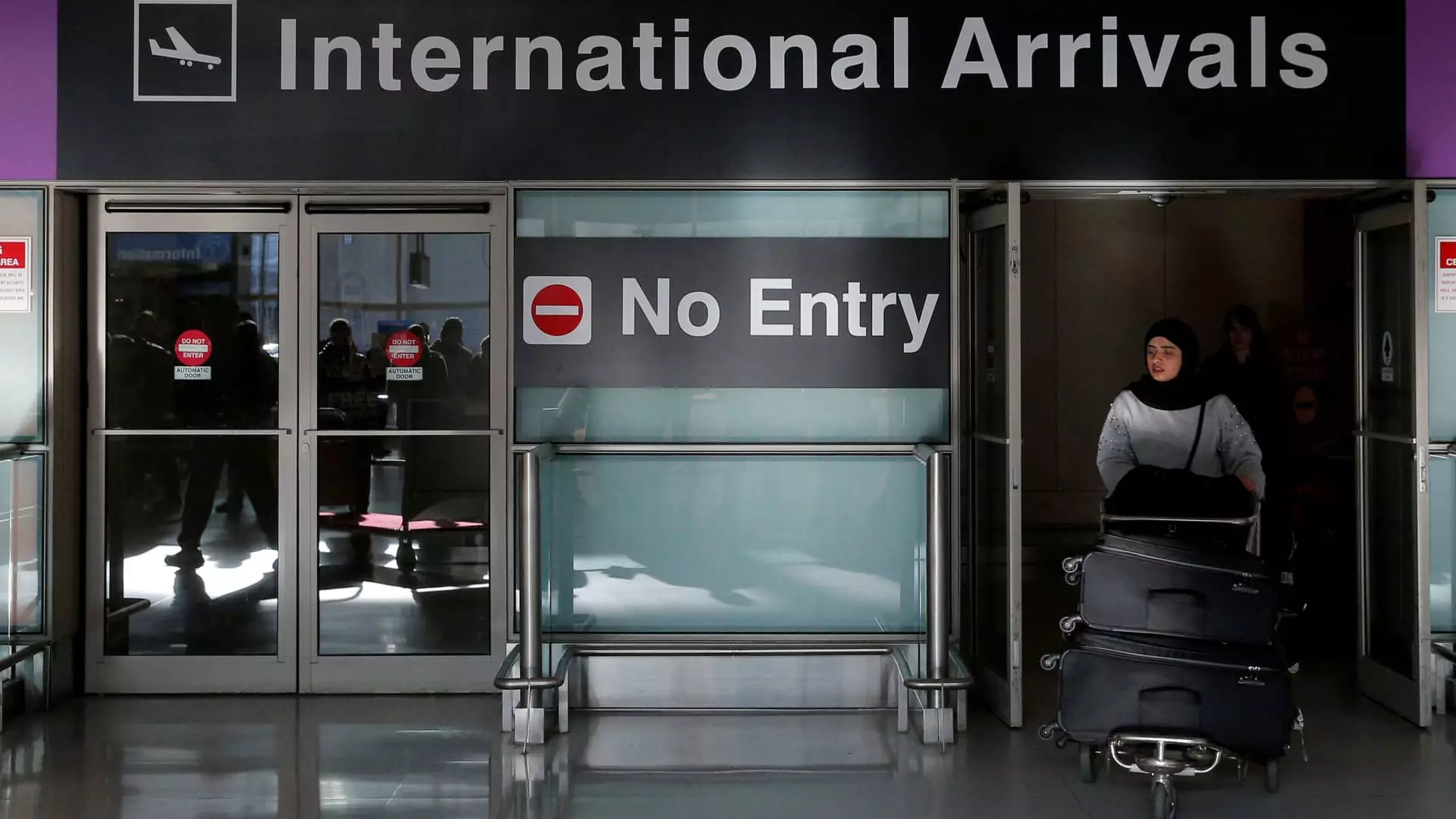The recent travel ban instigated by President Donald Trump is a disheartening chapter in the ongoing saga of U.S. immigration policy. Effective Monday, this controversial proclamation extends its arms of exclusion to citizens from 12 mainly African and Middle Eastern countries. This decision not only invokes an atmosphere of fear but also stands as a testament to the dangerous political rhetoric that seeks to frame entire nations through a lens of suspicion.
This ban—targeting nations like Afghanistan, Iran, and Haiti—claims to enhance national security under the guise of preventing terrorism and public safety threats. However, the reality is starkly different. It weaves a narrative that not only endangers the lives of individuals seeking refuge from violence and oppression, but also diminishes the United States’ long-cherished values of openness and acceptance. Elvanise Louis-Juste, a Haitian-American, poignantly articulates this sentiment when she reflects on the emotional turmoil of families separated by draconian policies. Her words resonate not just with personal anguish but also reflect a larger, disconcerting truth: that this ban does not just affect individuals but fractures the very soul of American society.
Legal Facades: A Strategy to Evade Accountability
Critics argue that the new travel ban has been meticulously crafted to sidestep potential court challenges, revealing a chilling strategic depth. By shifting focus to the visa application process rather than outright bans, the administration attempts to present a veneer of legality. This calculated move could indicate an unsettling trend where national safety concerns are weaponized to further political ends.
Trump’s rhetoric cites “deficient” screening processes employed by these nations as a primary justification for the ban. Yet, the ban’s origins lie not in a genuine concern for national security but rather in a reactionary response to foreign policy challenges. To paint entire countries as breeding grounds for terrorism is not only an oversimplification but a dangerous generalization that can pave the way for xenophobia, division, and ongoing animosity towards those seeking better lives in America.
Notably, Trump’s claims tie the ban to high-profile incidents of visa overstays, invoking images of threats that largely exist in the abstract. Ironically, this speaks less about the effectiveness of current immigration policies and more to a pervasive fear-mongering that tends to surface during politically charged moments. If the U.S. truly aims to uphold its image as a nation of laws, it ought to consider the broader implications of its immigration policies beyond simplistic categorizations of “us” versus “them.”
The Ripple Effects on Refugees and Diplomacy
The impact of this travel ban extends beyond the immediate consequences faced by individuals seeking asylum. Respected organizations, including Oxfam, have denounced the policy as a dangerous tool for sowing division rather than fulfilling genuine security concerns. The affectations of such a policy yield reverberations across international borders, cultivating an environment of distrust that jeopardizes the very fabric of global partnerships.
Nicolas Maduro’s government in Venezuela harshly criticized the travel ban, viewing it as part of a larger campaign of stigmatization. Such international condemnation highlights the risk of a country isolating itself at a time when global cooperation is more vital than ever. By creating an “out” group from innocent refugees, credibility in the global arena is compromised, and an erosion of trust ensues.
Additionally, the fallout from this policy also threatens the humanitarian principles that underpin U.S. immigration law. People fleeing violence—like those from Haiti or Afghanistan—are not the enemies; they are victims of circumstances far beyond their control. To treat them as potential threats based solely on their citizenship draws a perilous line that could haunt the nation for generations.
In this era of precarious international relations, the injustices birthed from such bans are not just a blemish on American policy; they could define a turning point in the very understanding of American identity on the world stage. The polarization fostered by this decision reveals deeper truths about societal fragmentation, forcing us to examine how the language of safety, when misapplied, can lead to dire consequences for humanity at large.

Leave a Reply